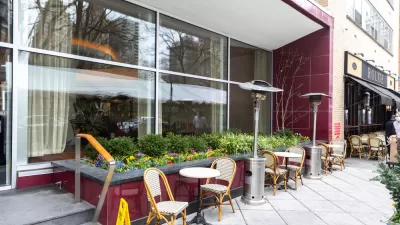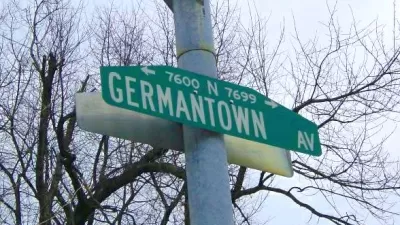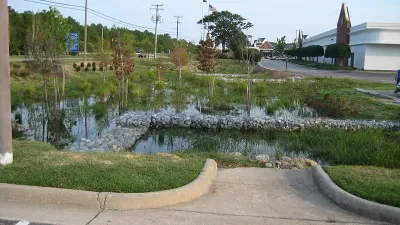"There is just too much to learn," from open streets events, says Philadelphia Inquirer Architecture Critic Inga Saffron.
According to a column by Inga Saffron (and professional planners might be happy to hear this), "urban planners are starting to pile up the wins. They've introduced amenities that encourage the slow-movers - things like sidewalk cafes, parklets, bike lanes, and riverfront trails. It's no accident that the emphasis on people-friendly attractions has coincided with the greatest urban revival since American cities crashed in the 1960s."
That remarkable summation of the current zeitgeist in American planning comes courtesy of Saffron's take on the open streets movement's latest in-roads in Philadelphia. In fact, Saffron sees open streets as a way for Philadelphia to make even more substantive contributions in the advancement of people-first planning.
Saffron's column counters the predictable outcry from the "car-first lobby," which has already commenced with berating the idea of car-free days in Philadelphia's Central City, following the accidental model provided by Pope Francis's recent visit to the city. To counter the apocalyptic future imagined by such naysayers, Saffron provides a more sober explanation of the current proposals for open streets events in Philadelphia as well as some of the benefits such an event could bring to the city. One potential benefit would follow the example of Atlanta in gaining new understanding about the city's traffic needs.
FULL STORY: Changing Skyline: Why Open Streets is not the apocalypse

Americans May Be Stuck — But Why?
Americans are moving a lot less than they once did, and that is a problem. While Yoni Applebaum, in his highly-publicized article Stuck, gets the reasons badly wrong, it's still important to ask: why are we moving so much less than before?

Using Old Oil and Gas Wells for Green Energy Storage
Penn State researchers have found that repurposing abandoned oil and gas wells for geothermal-assisted compressed-air energy storage can boost efficiency, reduce environmental risks, and support clean energy and job transitions.

Placekeeping: Setting a New Precedent for City Planners
How a preservation-based approach to redevelopment and urban design can prevent displacement and honor legacy communities.

San Francisco’s Muni Ridership Grew in 2024
The system saw its highest ridership since before the Covid-19 pandemic, but faces a severe budget shortage in the coming year.

Colorado Lawmakers Move to Protect BRT Funding
In the face of potential federal funding cuts, CDOT leaders reasserted their commitment to planned bus rapid transit projects.

Safe Streets Funding in Jeopardy
The Trump administration is specifically targeting bike infrastructure and other road safety projects in its funding cuts.
Urban Design for Planners 1: Software Tools
This six-course series explores essential urban design concepts using open source software and equips planners with the tools they need to participate fully in the urban design process.
Planning for Universal Design
Learn the tools for implementing Universal Design in planning regulations.
Heyer Gruel & Associates PA
City of Moreno Valley
Institute for Housing and Urban Development Studies (IHS)
City of Grandview
Harvard GSD Executive Education
Salt Lake City
NYU Wagner Graduate School of Public Service
City of Cambridge, Maryland





























